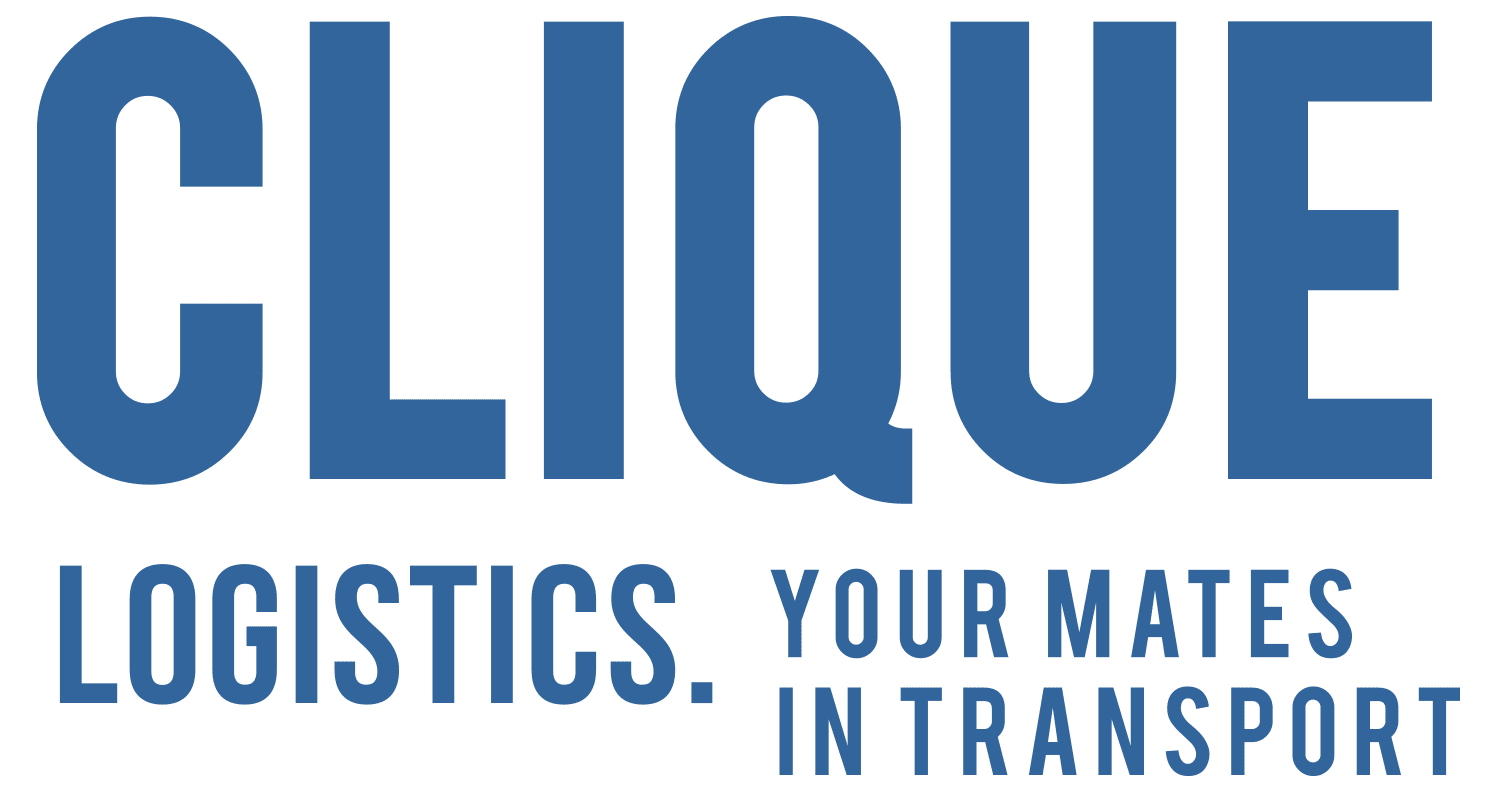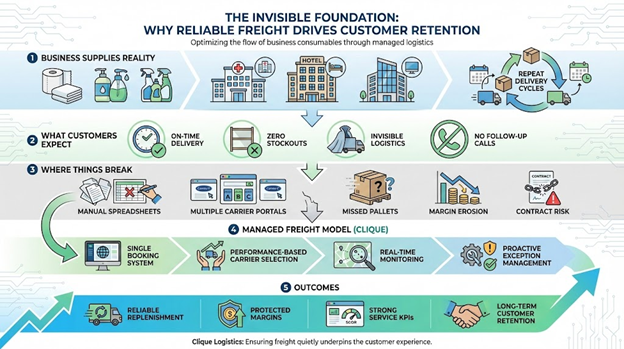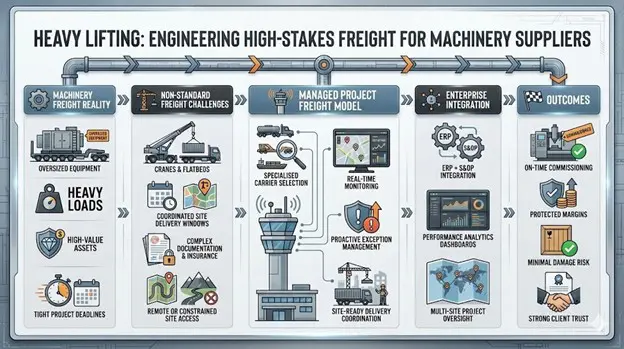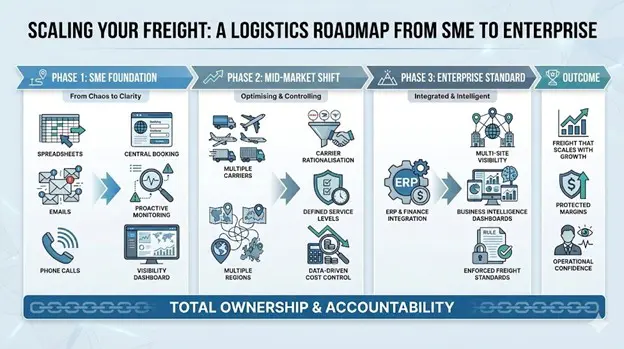In today’s fast-paced logistics environment, partnering with the right freight management provider isn’t just about moving goods from point A to point B. It’s about creating a seamless supply chain that gives your business a genuine competitive advantage. Whether you’re managing domestic freight, interstate freight, or local courier services, the right freight partner can become an extension of your team—helping you optimise operations, reduce costs, and exceed customer expectations.
Here’s what you should expect from your freight management partner and how leveraging their network can position your business for success.
What to Expect from Your Freight Management Partner
1. Consistent Service Levels Across All Operations
Your freight partner should deliver consistent, reliable service, even during peak periods. Whether it’s managing local couriers or handling large-scale interstate freight, their ability to maintain high performance is crucial. Expect them to:
– Ensure on-time deliveries across all freight types.
– Handle increased demand during peak seasons without compromising quality.
– Provide a scalable solution that grows with your business.
2. Proactive Communication and Updates
Timely and transparent communication is key to avoiding disruptions. A dependable freight partner should:
– Notify you of potential delays or issues before they impact your operations.
– Offer detailed, real-time updates on shipments.
– Be easily accessible through a responsive customer service team.
3. Tailored Recommendations and Strategic Support
Your freight management partner should act as a trusted advisor. Expect them to:
– Regularly assess your freight needs and recommend improvements.
– Identify inefficiencies in your supply chain and suggest optimisations.
– Tailor solutions to meet the unique requirements of your business, whether for local courier services or nationwide freight networks.
4. Flexibility to Adjust Carrier Mix
A modern freight partner understands that agility is crucial in today’s market. They should:
– Allow you to adjust your carrier mix quickly if certain providers aren’t performing.
– Offer a multi-carrier network that gives you access to the best options for specific routes or services.
– Provide tools and systems that empower you to make informed decisions on the fly.
5. Transparent Costs and No Surprises
Hidden fees or unexpected charges can erode trust. Your freight partner should:
– Provide clear and upfront pricing, even during peak periods.
– Communicate any additional fees well in advance.
– Align their pricing structure with your budget and operational goals.
6. Comprehensive Risk Management
With increased freight volumes comes greater risk of loss or damage. Your freight partner should:
– Offer insurance or warranty programs to protect your consignments.
– Give you peace of mind by managing claims quickly and effectively.
Using Your Transport Network as a Competitive Advantage
Freight management is no longer just a logistical necessity; it’s a strategic tool that can set you apart from your competitors. Here’s how leveraging your transport network can create a legitimate competitive edge:
1. Enhancing Customer Experience
With consumers expecting faster and more reliable deliveries than ever, your freight network can play a key role in meeting these demands. A well-optimised transport network ensures:
– Faster delivery times and improved reliability.
– Real-time tracking and proactive updates for your customers.
– Exceptional service levels that build trust and loyalty.
2. Streamlining Operations and Reducing Costs
An efficient freight network doesn’t just deliver goods—it delivers value. By working with a partner that prioritises continuous improvement, you can:
– Identify cost-saving opportunities in your supply chain.
– Minimise inefficiencies, such as unnecessary delays or manual processes.
– Focus resources on core business activities instead of chasing freight.
3. Flexibility and Scalability
The ability to adapt is a competitive advantage in itself. A robust freight network should empower you to:
– Scale operations up or down depending on demand.
– Pivot quickly when certain routes or carriers face challenges.
– Seamlessly handle peak periods without impacting service quality.
4. Data-Driven Insights for Strategic Decision-Making
A strong freight partner will provide access to data that helps you make better business decisions. With advanced tracking and reporting tools, you can:
– Monitor performance metrics to identify areas for improvement.
– Analyse trends to predict and prepare for peak periods.
– Develop strategies to optimise routes and carrier selection.
5. Building Brand Differentiation
Reliable and efficient freight management isn’t just about operations—it’s about reputation. Customers remember brands that deliver on their promises. By leveraging a high-performing transport network, you can:
– Position your business as a leader in service reliability.
– Gain a reputation for transparency and trustworthiness.
– Stand out in competitive markets by exceeding customer expectations.
The Way Forward
It doesn’t matter if you are in Adelaide, Melbourne, Sydney, Perth, Brisbane or elsewhere in Australia – using your domestic freight to generate a legitimate competitive advantage is one way to differentiate yourself from your competitors. Coupled with focusing on continuously improving your network and service offering, you then benefit from the compounding effect of marginal gains.
The right freight management partner does more than move goods—they become a key player in your business’s success. By meeting and exceeding expectations in service quality, communication, and flexibility, they help you build a supply chain that is resilient, efficient, and competitive. At the same time, leveraging their transport network as a strategic tool allows you to improve operations, enhance customer satisfaction, and gain an edge in the market.
As you plan for the year ahead, consider whether your current freight partner is meeting these expectations. If not, it may be time to explore new opportunities with a provider that aligns with your goals for continuous improvement and sustainable growth. The right partner won’t just support your business—they’ll help you lead the way.




